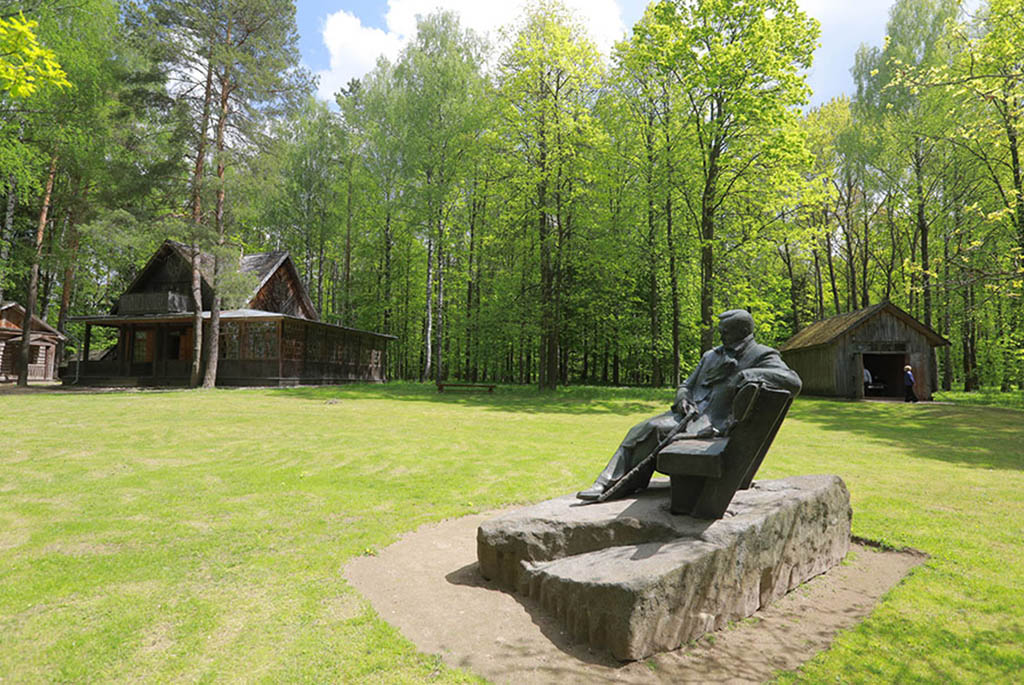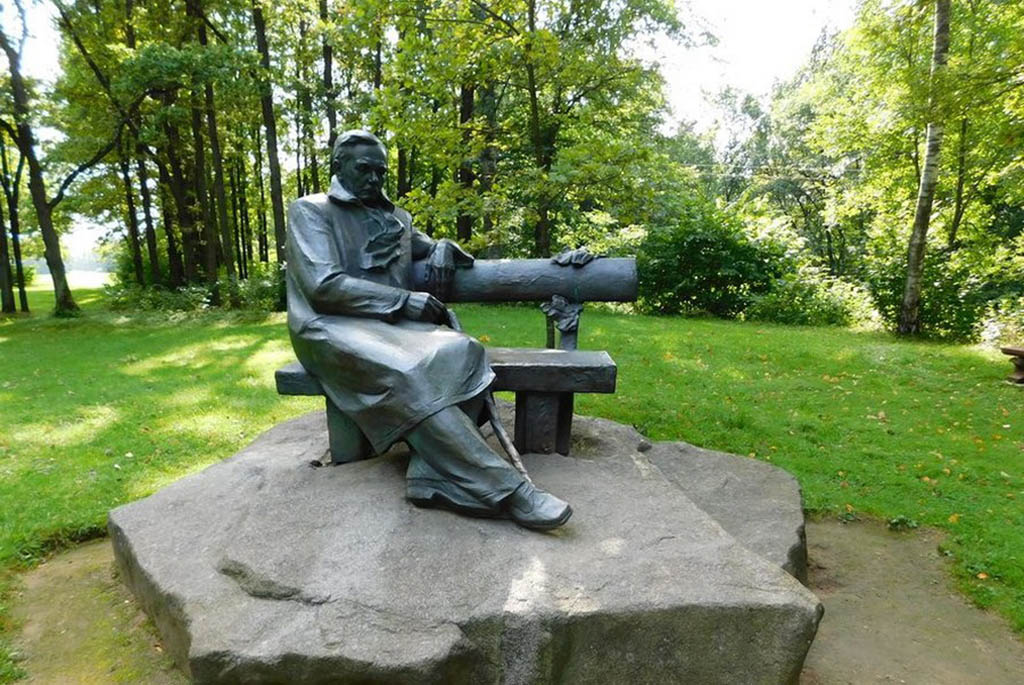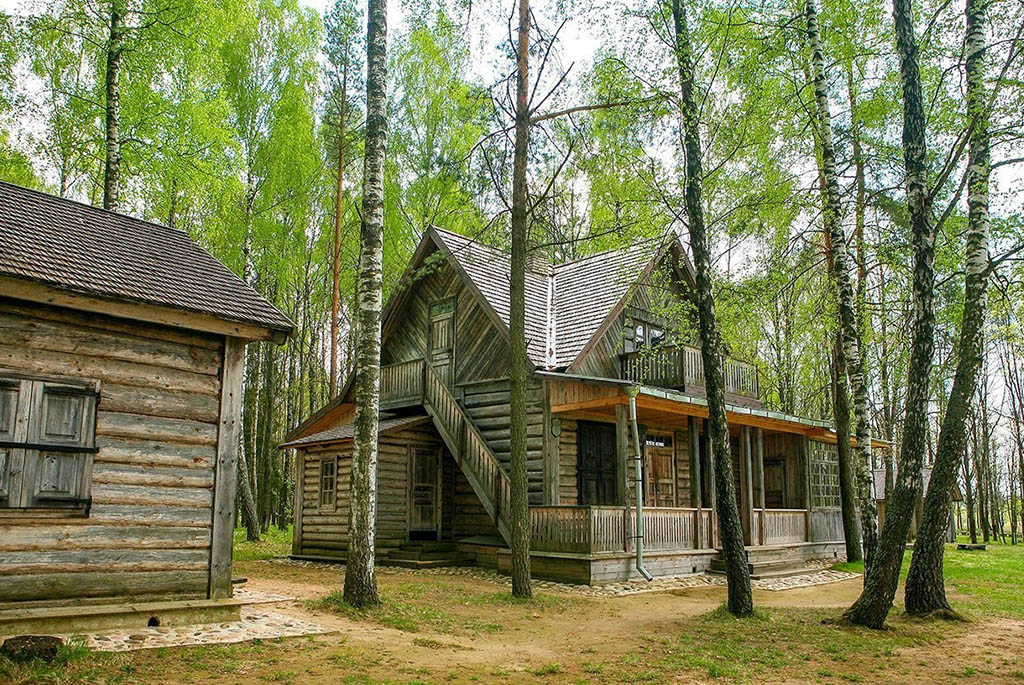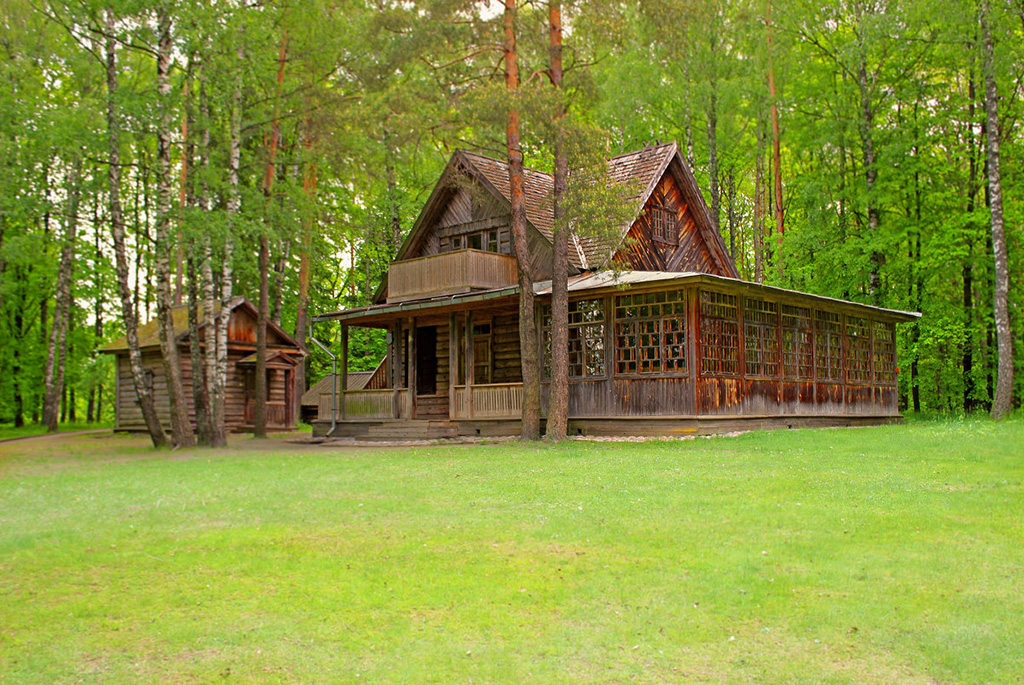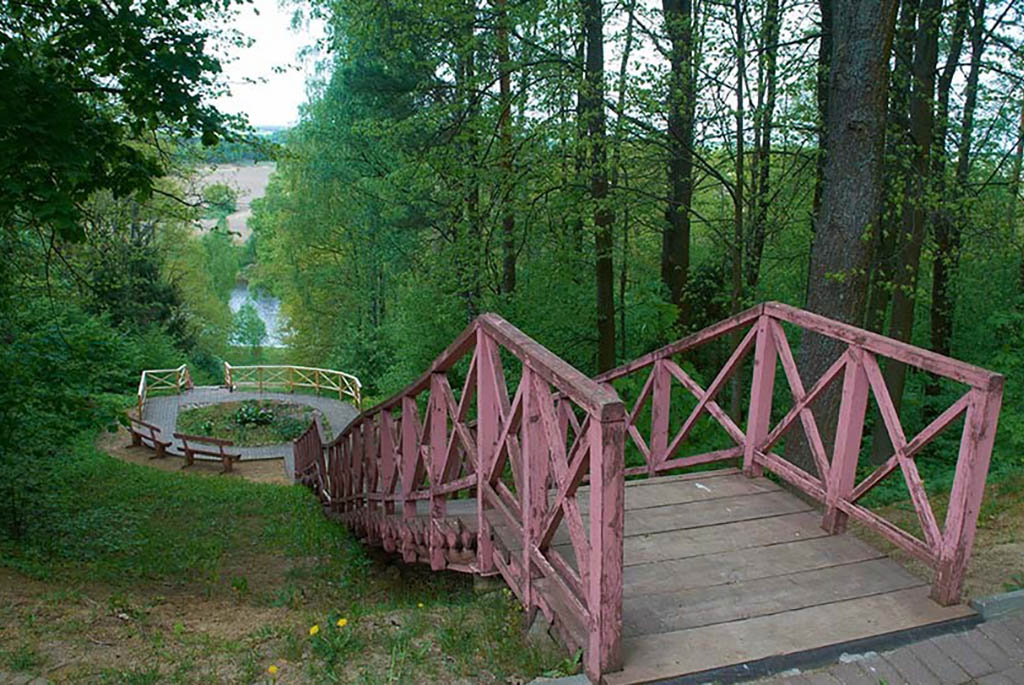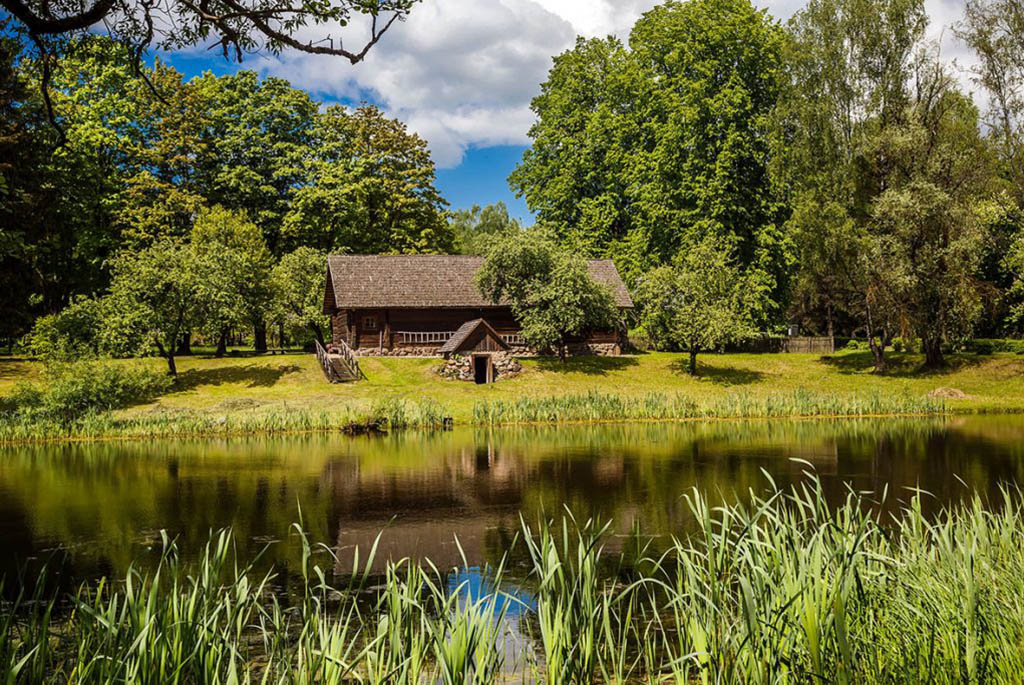City streets, parks, libraries, the University of Grodno, the National Academic Theater, and the capital's metro station are named after him. Monuments to the poet can be found not only in Belarus but also in Russia, Israel, China, and the USA.
Two years after the poet's death, in 1944, a literary museum dedicated to the life and work of the classic was opened in Minsk. In 1945, it was decided to open a branch of the museum in the Vitebsk region, near the village of Levki in the Orsha district. From 1935 to 1941, the poet's dacha, where he actively worked and spent time with his family and friends, was located on the banks of the Dnieper River. Here, surrounded by magnificent, inspiring nature, dozens of works were written that became part of the golden fund of Belarusian literature.
At the very beginning of the war, in July 1941, the dacha burned down – a shell hit the wooden building. Later, as part of the museum branch, the dacha was restored, and the museum exhibition was expanded. In 1978, the Kupala Memorial Reserve ‘Levki’ was opened, which has been operating for 45 years.
What does the «Levki» Memorial Reserve represent?
The memorial complex includes:
- A reconstructed poet's dacha based on photographs and eyewitness memories – it displays Yanka Kupala's personal belongings, furniture, appliances, and documents. Here, visitors can see a radio receiver, the desk at which the poet worked, a kerosene lamp, and many other artifacts from the 30s and 40s of the 20th century that belonged to the writer.
- A building that previously belonged to the Kopyl forestry – the poet lived here for some time with the forester's family while his dacha was being built. In the former forester's office, books, manuscripts, portraits of Kupala, literary publications from different years, letters, and materials about the poet's meetings with literary colleagues such as Y. Kolas, P. Brovka, K. Chorny and others are kept.
- The chauffeur's house – here is a Chevrolet car, once gifted to the writer by the leadership of the BSSR.
- A monument by A. Anikeichik, depicting Kupala sitting on a bench.
Digital technologies have enriched the exhibition of the Kupalovsky reserve. The museum has a multimedia window through which visitors can see the poet himself walking in the garden to the singing of birds and hear his voice.
The museum complex also includes utility buildings, a hotel, a wooden staircase leading to the Dnieper River, and an informational stand with a map of the reserve at the entrance.
In ‘Levki’, concerts, exhibitions, and literary evenings are held. On the eve of the poet's birthday, festive events are organized in his honor.
Having visited the Kupalovsky reserve, it becomes clear why the writer chose this place for rest and inspiration. Tall pines, clean air, the silence of the forest, and the picturesque banks of the Dnieper River can inspire and encourage a poetic nature to create new artistic works.
To get to the 'Levki' Memorial Reserve, you must first take a bus or train to Orsha. Then, take the 'Orsha-Kopyl' bus from the Orsha bus station to the «Yanka Kupala Museum» stop.
